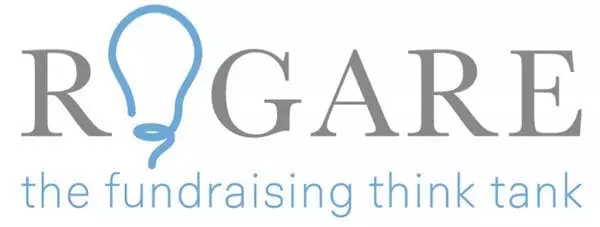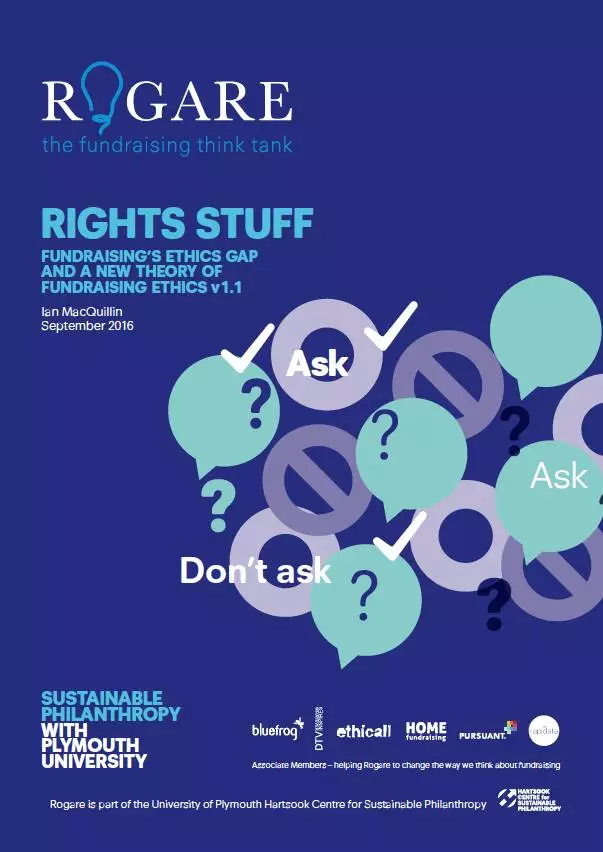Rogare presents new theory of fundraising ethics
Fundraising is ethical when it achieves a balance between the rights of both donors and beneficiaries, according to a new theory of fundraising ethics.
Rogare, the fundraising think tank at Plymouth University’s Hartsook Centre for Sustainable Philanthropy, has today published a white paper outlining its new theory of ‘Rights Balancing Fundraising Ethics’.
While much attention has been paid to the rights of donors in fundraising, the new theory brings the beneficiaries of charities into the ethical decision making in fundraising “for the first time”, according to Ian MacQuillin, Rogare’s director.
The new theory states that fundraisers owe duties to both their donors and their beneficiaries, because both stakeholders possess certain rights they hold against fundraisers.
Conflicting rights
Of course, these rights can and do come into conflict, generating ethical dilemmas in fundraising. These occur when there is tension between:
- what donors want fundraisers to do e.g. don’t ask, ask less, ask in a different way, ask at a different time; and
- what beneficiaries need fundraisers to do ie. maximise income to ensure the charity provides services
The new theory suggests that balancing these tensions yields ethical fundraising. Specifically it states that:
Advertisement
“Fundraising is ethical when it balances the duty of fundraisers to solicit support on behalf of their beneficiaries, with the right of donors not to be subjected to undue pressure to donate”.
The theory has clear applications in helping fundraisers steer a course amid the current and recent media and public criticism of some fundraising methods by some charities. For example, unbalanced and unethical fundraising could take the form of a campaign that repeatedly solicits donors who had requested not to be contacted. Equally, it could take the form of (self) regulation that prevents fundraisers from approaching large numbers of potential or current donors if it significantly harmed beneficiaries.
We now live in a world where it's "harder to ask for a gift to save a life, than to sell car insurance" – @AdrianSargeant @RogareFTT
— David Pearce (@medavep) September 19, 2016
Fundraising ethics

Ian MacQuillin
Fundraising ethics is a common topic at fundraisers’ conferences, but it tends to consist of applied ethics, rather than a detailed or developed theory of ethics.
MacQuillin, says:
“For such a fundamentally important topic, there has been surprisingly little theory development of fundraising ethics over the past 25 years.
“Fundraisers have a lot of applied ethics contained in their codes of practice, which tells them what they may or may not do. But there is very little in the way of ‘normative’ ethics that helps fundraisers understand why they ought or ought not do particular things, or provides a context for their ethical decision making frameworks.”
The white paper includes a review of the academic literature that suggests candidates for a normative theory of fundraising ethics. These include:
- ‘Trustism’ – fundraising is ethical when it maintains and protects public trust in fundraising
- ‘Donorcentrism’ – fundraising is ethical when it gives priority to donors’ needs, wants, desires and wishes
- ‘Service of Philanthropy’ – fundraising is ethical when it brings meaning to donors’ philanthropy.
MacQuillin commented:
“What normative thinking there has been quite startlingly ignores beneficiaries and focuses almost exclusively on fundraisers’ duties to their donors. Surprising as it may seem, Rights Balancing Fundraising Ethics brings beneficiaries into ethical decision making in fundraising for the first time.”

Rogare is “the home of Critical Fundraising”, the discipline of critically evaluating what fundraisers know, or think they know, about their profession.
How are beneficiaries ‘framed’
The white paper is the first part of a full review of fundraising’s professional ethics that is expected to take at least a year. Further work will be done including:
- a global survey of the existing ethical decision making processes fundraisers currently employ
- development of the ideas by Rogare’s advisory group of academic and fundraisers
- applying Rights Balancing Fundraising Ethics to the question of how beneficiaries are ‘framed’ in marketing materials.
The latter project will be lead by Derek Humphries, creative director at Rogare Associate Member DTV, who explained:
“The framing debate has become unhelpfully adversarial. Fundraisers are accused of exploiting ‘beneficiaries’ – even that word has become contentious. Meanwhile fundraisers accuse policy folk of getting angry about fundraising images instead of angry about the injustice that good causes seek to address.
“Of course, here I simplify a range of passionate views. Passion is a good thing, a necessary thing, in our work. But we need level-headed clarity, not infighting. We need to reframe the debate. Rogare’s new theory helps by introducing the notion of balance in one’s duties to beneficiaries: raising money and challenging stereotypes.”
You can download the ethics white paper, Rights Balancing Fundraising Ethics, in PDF.





